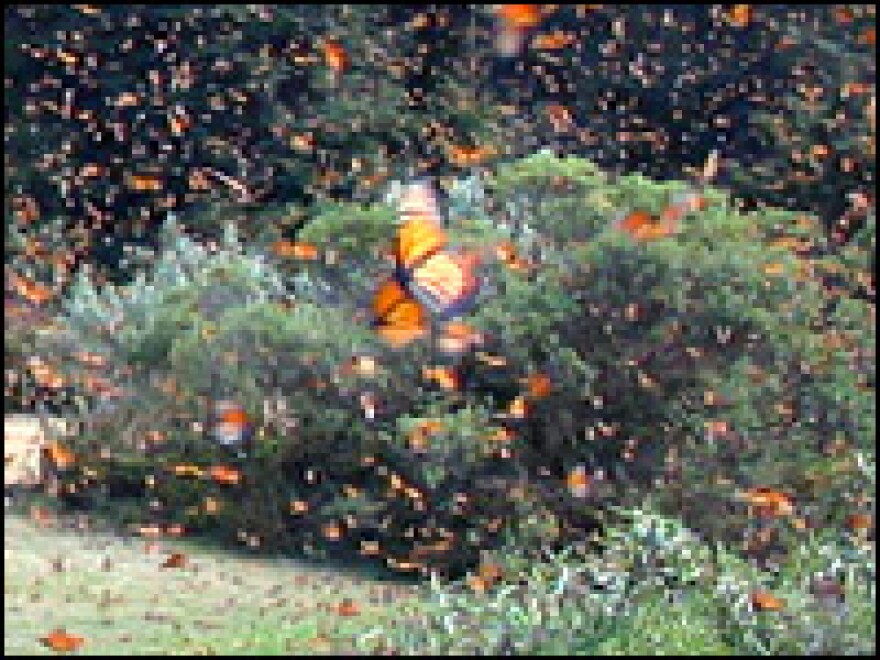
Millions of Monarch butterflies are now in the fir forests of central Mexico, having made the 2,000-mile journey from their breeding grounds in North America to their winter retreat.
Scientists hail the annual migration as one of nature's great mysteries. But as NPR's Lourdes Garcia-Navarro reports, some of those who live in the area the butterflies descend upon from November to March see it as a mixed blessing.
While the beauty of the butterflies and the attention they bring has been welcomed, the area is rife with poverty, and many people rely on logging the forest to eke out a living.
In 1986, Mexico demarked a 60-square-mile area as a Monarch Butterfly Biosphere Reserve, meant to conserve the habitat. But it also superceded existing land claims of the people within the reserve's boundaries, curtailing logging and offering no compensation. While the government still maintains the reserve, it now has two mandates: To protect the butterflies while also helping the locals who have land within its confines.
But illegal logging continues. Two months ago, the government placed soldiers to guard the reserve. Several North American charities are also paying local communities not to cut down the trees.
Copyright 2022 NPR. To see more, visit https://www.npr.org.



